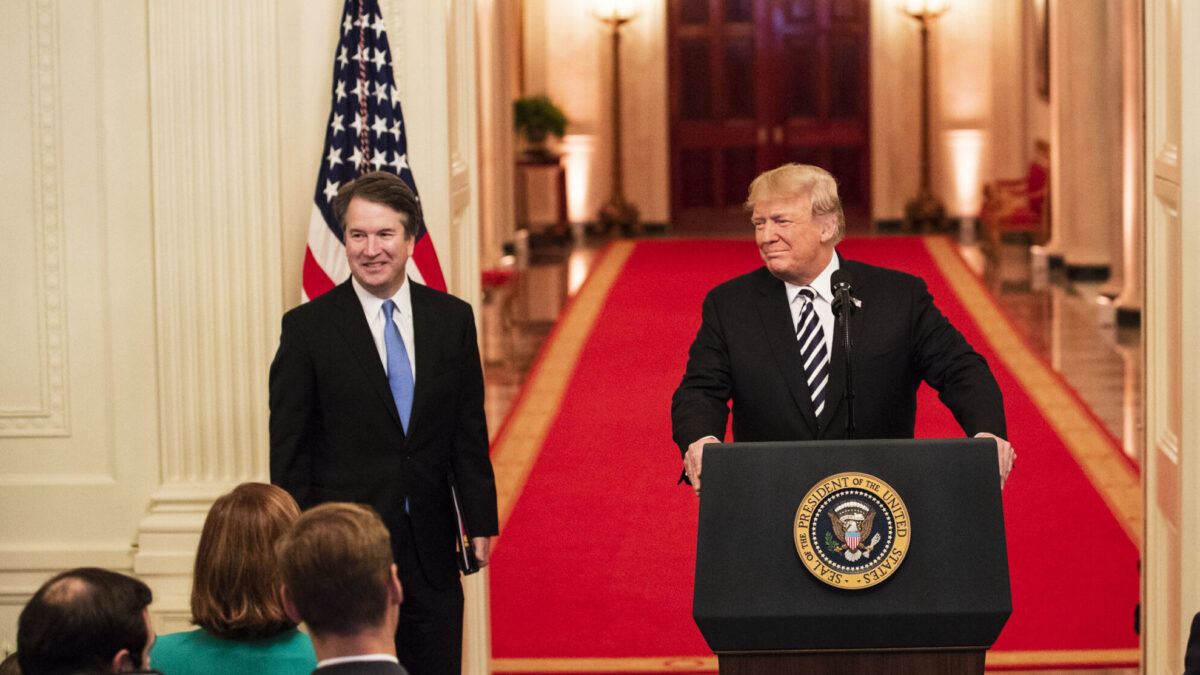
Supreme Court Justice Brett Kavanaugh hinted during oral arguments on Thursday that Colorado Democrats’ decision to remove former President Donald Trump from the state’s 2024 primary ballot is anti-democratic, noting that it disenfranchises voters.
The Colorado Supreme Court ruled in December 2023 to bar Trump from the ballot over accusations that he “incited insurrection” on Jan. 6, 2021. The rationale for the decision did not appear to sit well with Kavanaugh, who pressed Colorado lawyer Jason Murray about the state’s attempt to deny Americans the right to choose their preferred candidate.
“What about the idea that we should think about democracy, think about the right of the people to elect candidates of their choice, of letting the people decide?” Kavanaugh asked.
Murray spent most of Thursday morning arguing that Colorado had a right to disqualify Trump under Section 3 of the 14th Amendment. Kavanaugh, however, told him it’s the Centennial State’s position, not the 2021 Capitol chaos, that “has the effect of disenfranchising voters to a significant degree.”
“And should that be something? Does that come in when we think about, should we read Section 3 this way, or read it that way. What about the background principle, if you agree, of democracy?” Kavanaugh continued.
Murray sidestepped Kavanaugh’s question and repeated his claims that Section 3, like all “constitutional safeguards,” was “designed to protect our democracy.”
“The framers of Section 3 knew from painful experience that those who had violently broken their oaths to the Constitution couldn’t be trusted to hold power again because they could dismantle our constitutional democracy from within. And so they created a democratic safety valve,” Murray replied.
As Trump’s lawyer Jonathan Mitchell explained to Justice Ketanji Brown Jackson earlier in the day, the events at the Capitol on Jan. 6 “did not qualify as insurrection as that term is used in Section 3” and therefore could not be used to bar Trump from the ballot.
According to Murray, the only way Trump should remain eligible for office is by asking two-thirds of each congressional chamber to remove his supposed disability under Section 3.
“This case illustrates the danger of refusing to apply Section 3 as written, because the reason we’re here is that President Trump tried to disenfranchise 80 million Americans who voted against him, and the Constitution doesn’t require that you be given another chance,” Murray claimed.
As Trump’s lawyers have repeatedly stated in all of the lawfare cases against him, questioning the integrity of an election is a First Amendment right, not a crime.









